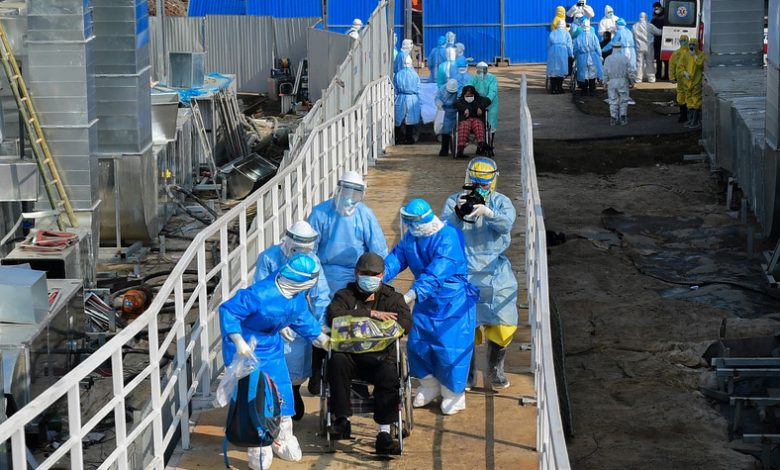
Over one million coronavirus cases reported in Eastern Mediterranean, says world health organization
The World Health Organization (WHO) has confirmed more than one million cases of coronavirus in the 22 countries of Eastern Mediterranean Region and 23 461 deaths have been recorded from the Region, which spans from Morocco to Pakistan as at Sunday.
Penpushing reports that, this was contained in a statement by the, World Health Organisation (WHO) Regional Director for the Eastern Mediterranean, Dr Ahmed Al-Mandhari , adding that while cases in Europe have been have been recorded from the region, which spans from Morocco to Pely declining, countries in the Region have been seeing increases in the number of cases and deaths.

The statement said countries recently reporting increases in cases are Islamic Republic of Iran, Iraq, Libya, Morocco, occupied Palestinian territory and Oman, while the health organization said it is concerned about the spread of the virus in war-torn countries such as Syria, Yemen and Libya due to poor infrastructure and fragile health systems vastly weakened by conflict.
Penpushing further reports that, World Health Organisation(WHO) pointed out that, in all countries, there is still a clear need for expansion of testing and more accurate reporting of cases and deaths to inform targeted responses.
“This is a very concerning milestone. As shops, restaurants, mosques, businesses, airports and other public places begin to open up, we need to be more vigilant and cautious than ever before;, the statement reads.
‘One million people have been infected, tens of thousands have died, and many more are still at risk in our Region. We cannot relax our efforts. In fact, many countries lifting restrictions are seeing marked increases in cases, which signify the need to accelerate public health response measures.
‘Communities must remain vigilant and play a key role in keeping themselves and their countries safe. As countries also begin opening up points of entry, there is an increased risk of a resurgence of travel-related cases, requiring stricter measures to be in place at borders, especially land crossings. Also of concern are migrants in the Region who are now returning to their home countries, which may impact the situation in other WHO regions’.
‘Epidemiologists and other WHO specialists are working closely with governments in the Region to provide guidance on gradual re-openings and ways to minimize and respond to flare-ups of the virus’.
‘WHO continues to equip the Region’s health systems with test kits, protective gear, and supplies needed to treat COVID-19 patients, while working to evaluate how the COVID-19 situation will evolve over the coming months’.
‘While measures are being lifted, WHO’s calls to countries becomes even more critical: sustained efforts must be made to find, isolate, test and treat all cases, and trace every contact. Holding of mass gatherings must be reviewed from a public health risk-assessment approach’.
‘Individuals must follow an equally rigid process to protect themselves and others by practising regular hand hygiene measures, following proper coughing and sneezing protocol, ensuring physical distancing, and wearing masks in public settings as directed by respective national health authorities. Members of the public need to be cautious of symptoms, stay home if they feel sick, and seek medical care immediately, if needed’.
“Sadly, we cannot behave as if the situation will go ‘back to normal. In the coming period, we need to see a shift in attitudes and actions. Now is the time for a sustained commitment from both governments and individuals” Al-Mandhari stressed







